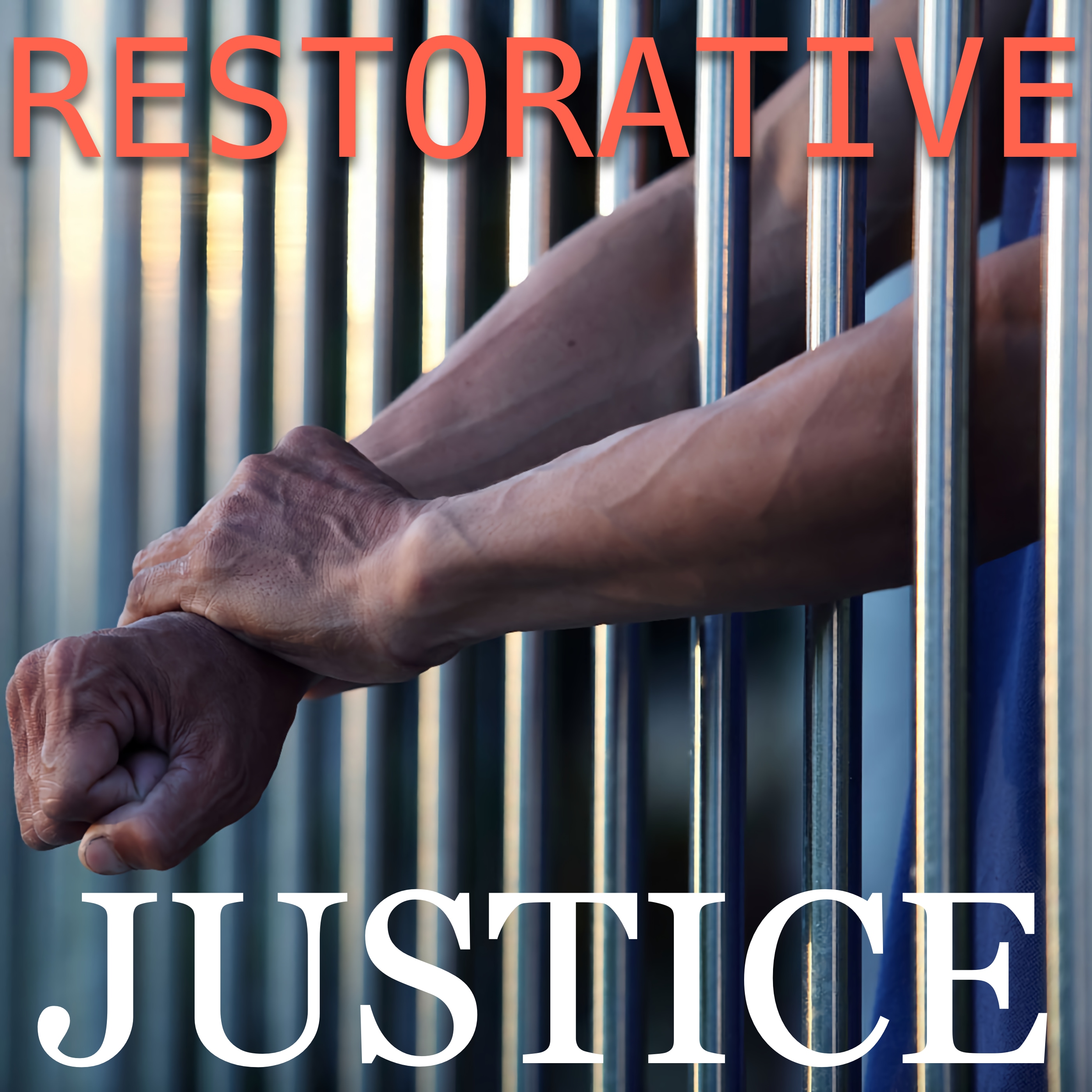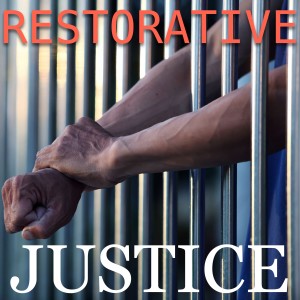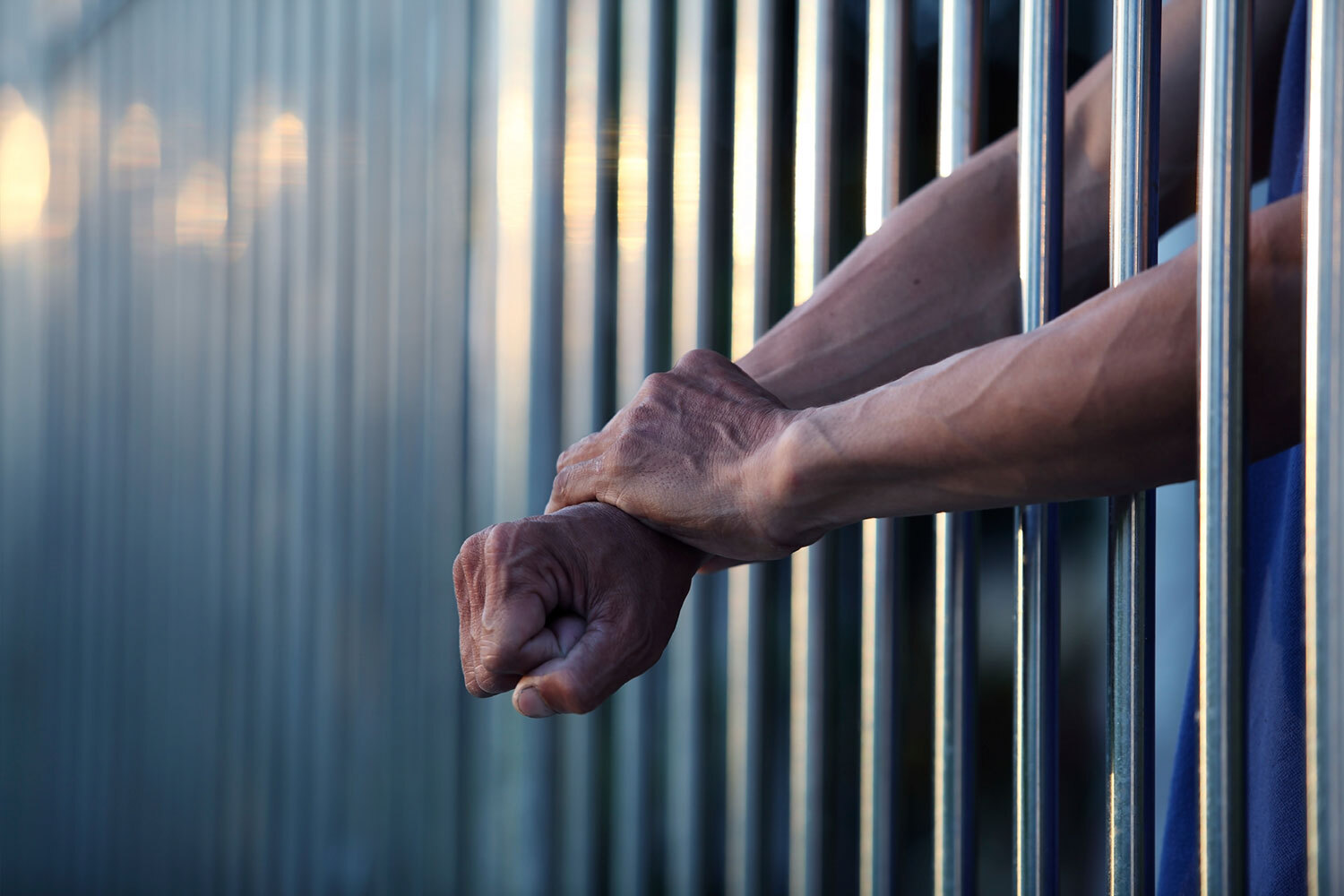
3.6K
Downloads
77
Episodes
The Restorative Justice Ministry of the Diocese of Austin is directed toward reducing trauma within correctional facilities, recidivism, and increasing public safety through a growth in faith and healing for offenders, ex-offenders, their families and for the victims of crime. Fr. Harry Dean and Deacon Ronnie Lastovica bring helpful and hopeful Catholic perspective and teaching to the hard topics relevant to our incarcerated brothers and sisters. Restorative Justice brings hope in God’s Word to the incarcerated, the staff at correctional facilities, families of incarcerated individuals, and ex-offenders reacclimating to society.
Episodes

Tuesday Jun 08, 2021
Trauma and Sexual Abuse - Part 5
Tuesday Jun 08, 2021
Tuesday Jun 08, 2021
In this episode of this 5 part series on trauma and sexual abuse, Fr. Harry, Dcn. Ronnie, Renee discussed the following:
1) What are the types of sexual abuse perpetrated against adults?
2) What is the impact of sexual assault on victims/survivors?
3) What are some of the common reactions or responses to sexual assault?
4) What is PTSD and how does it relate to adult sexual assault?
5) In relation to PTSD, explain the Twelve Spiritual Steps Program

Thursday Apr 08, 2021
Manipulation - Part 1
Thursday Apr 08, 2021
Thursday Apr 08, 2021
In this episode on the four-part manipulation series, Fr. Harry, Dcn. Ronnie, Renee discussed the following:
Define manipulation.
What are some examples of manipulation?
Why is manipulation wrong?
Why do people manipulate others?
What are the goals of a manipulator?

Thursday Apr 08, 2021
Manipulation - Part 2
Thursday Apr 08, 2021
Thursday Apr 08, 2021
In this episode on the four-part manipulation series, Fr. Harry, Dcn. Ronnie, Renee discussed the following questions:
What are the red flags of emotional manipulation?
What are some techniques utilized by manipulators?
What is gaslighting?
What are tactics people use to manipulate others to get what they want?
How does someone recognize the signs of manipulation?

Thursday Apr 08, 2021
Manipulation - Part 3
Thursday Apr 08, 2021
Thursday Apr 08, 2021
In this episode on the four-part manipulation series, Fr. Harry, Dcn. Ronnie, Renee discussed the following:
Describe the type of people prone to being manipulated.
What are some common characteristics of victims of manipulation?
What is codependency and how does it allow for one to be
manipulated?
What is the impact of being manipulated?
What are the short-term effects of being manipulated?
What are the long-term effects of being manipulated?

Thursday Apr 08, 2021
Manipulation - Part 4
Thursday Apr 08, 2021
Thursday Apr 08, 2021
In this episode on the four-part manipulation series, Fr. Harry, Dcn. Ronnie, Renee discussed the following questions:
How can someone protect themselves against a manipulator?
How can someone stop being manipulated?
What can a person expect when they use boundaries with a
manipulator?
What are a person’s fundamental human rights? How are they relatable
to being manipulated?

Wednesday Mar 10, 2021
Good Grief - Part 1
Wednesday Mar 10, 2021
Wednesday Mar 10, 2021
In this session about grief, the team talked about the following:
The Grieving Process:
Acute Grief
Complicated Grief
Integrated Grief
Stages of Grief:
Denial
Anger
Bargaining
Acceptance
Tasks of Mourning:
Accept the reality of the loss
Process the pain of grief.
Adjust to a world without the deceased
Find a way to remember the deceased while moving forward in life.

Wednesday Mar 10, 2021
Good Grief - Part 2
Wednesday Mar 10, 2021
Wednesday Mar 10, 2021
In this episode about grief, the following topics were discussed:
1) patience - have patience with yourself in this difficult time. Allow yourself to feel and to
share as it seems helpful for you. Don't try to rush the process.
2) support from your family and friends are important. Seek out persons who are willing to allow you to be yourself and will listen as you need to tell your story of loss and talk about your favorite memories. Don't be afraid to ask for help. Most people are just waiting for an invitation to be able to do something to help you.
3) balance - of quiet and activity. It is so tempting to get on a marathon road race of constant activity in order to avoid thinking and feeling. This is not healthy. You need a balance of activity - especially shared with others -and quiet to allow yourself the needed time to think and feel.
4) rest is especially important during grief as it is an exhausting experience. Allow yourself at least 8 hours of sleep per night and even a time to rest during the day during the first few months of grieving. lf you experience an extended period of inability to sleep it would be helpful to talk with your primary care physician. Without adequate rest the
emotional roller coaster of grief may be magnified and more difficult to manage.
5) talk with others who have experienced a similar kind of loss. Sometimes it is helpful just to know that others have thought and felt like you do. It is common for grieving persons to wonder if they are going "crazy," you will know you are not when you talk with someone who has walked a similar path.

Wednesday Mar 10, 2021
Good Grief - Part 3
Wednesday Mar 10, 2021
Wednesday Mar 10, 2021
In this episode about grief, the following topics were discussed:
1) drinking lots of fluids - while this may seem a strange thing to mention as part of the needs of
grieving persons, it is important. Research has proven that during grief the body more quickly absorbs
the fluids we drink. Thus, more fluids are needed.
2) exercising - (a little bit every day.) Physical exercise helps to keep the body chemistry working
normally and will help to decrease signs of depression: Take a walk with a friend. Go to a yoga
class. Put on some music and just move about in the privacy of your own room!
3) trusting in the process of grief - Grief is a natural process of bringing you back to a
place of balance physically, emotionally, and psychologically. It has its own timing. Trust that
within an emotionally safe environment you will be able to express the emotions that need to be
expressed and will move toward healing naturally.
4) establish a grief container - It can be very helpful to set aside a little bit of time each day, at the same time if possible. During this time, be intentional about your grieving needs. Write about your thoughts and feelings in a journal. Look at photos and write stories. Listen to your favorite music and allow whatever feelings to come up to be expressed. Limit this
time to no more than 45 minutes. Begin and end this time period the same way each day. For example, you might light a candle and then blow it out at the end. You might open your journal and return it to its place on the shelf each day. You might begin and end with a few moments of silence or prayer. Create your own ritual. This routine of opening and closing in the same way becomes the container that gives you cues this is the time to grieve and to ``hold your grief
inside" when the time ends.

Wednesday Mar 10, 2021
Good Grief - Part 4
Wednesday Mar 10, 2021
Wednesday Mar 10, 2021
Grief is a physical experience as well as emotional, psychological and spiritual. In this episode, the team discussed the following topics:
1) noticing the body sensations you experience during this time, especially when you are actively grieving.
2) Noticing where in your body you carry your grief, or even certain aspects of your grief. For example, someone may carry their sadness in a certain way in their neck and carry guilt in their stomach.
3) Don't try to change it, just focus your attention on it and be quiet for a few moments, this engages the natural healing process of the body.
We are wonderfully created and grief is normal and natural, thus, healing is a part of our make-up as well. Sometimes grief can be complicated by the circumstances of the death, a difficult relationship, multiple losses in a short period of time, and a number of other factors. If this is the case, ask for some professional help. Grief counseling with a specially trained professional will make a difference. You will heal, and the intensity of what you're feeling will get better. Grief has the power to transform us.

Friday Aug 28, 2020
Conflict Resolution - Part 2
Friday Aug 28, 2020
Friday Aug 28, 2020
In this episode of Restorative Justice, the following questions are discussed: 1) What are some specific skills people can use to manage conflict resolution? 2) We've talked about active listening before, but can you delve deeper? 3) Can you discuss what "I" messages are and give an example? 4) What is reflective feedback and its components? 5) What is meant by assertive communication and how do you use it? 6) How can people fight (argue) fairly?
